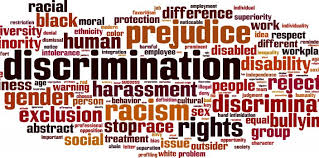Unlawful discrimination and how to protect against it

On May 29, 2018, about 175,000 Starbucks workers at about 8,000 locations underwent a training on race discrimination. The training session will focus on understanding both racial bias and the history of racial discrimination in public spaces in the United States.
Starbucks announced the training session after two black men were arrested for allegedly trespassing in a Philadelphia Starbucks. A store manager had called the police because the two men were sitting in the store without buying anything. The customers said they were waiting for another person to arrive. They were later released by the police for lack of evidence. The customers alleged racial profiling and discrimination.
The Starbucks CEO mandated the training to educate its employees on understanding bias and how it affects everyone and to ensure that nothing like the arrests will happen at a Starbucks again.
Though the Starbucks discrimination scenario happened to consumers, Starbucks certainly has the right idea about educating oneself and others on the nature of discrimination, how it may arise, and what people can do to recognize and prevent victimization. As a law firm that works to protect the rights of employees, we would like all employees to be educated and to be vigilant in this area.
Discrimination occurs when an employee receives less favorable treatment because of a specific characteristic they have. Not all types of discrimination are illegal. Illegal discrimination occurs when one is being targeted for a specific characteristic that the law says should be protected.
These protected characteristics include race or skin color; ancestry, national origin; religion or creed; age; disability (both mental and physical), medical condition and genetic information; sex and gender (including pregnancy, childbirth, breastfeeding or related medical conditions); sexual orientation; gender identity and gender expression; marital status; and military and veteran status.
Unlawful discrimination claims fall into two general categories:
- Disparate treatment discrimination occurs when an employee is specifically targeted because of the employee’s protected characteristic. For example, the employee is disciplined or fired for going on medical leave or for being pregnant. In this instance, the employer is motivated by a discriminatory reason, i.e., disability or pregnancy discrimination.
- Disparate impact discrimination occurs when the employer adopts a seemingly neutral policy that applies to all employees, but the policy has a more negative impact on those with a certain protected characteristic. For example, the employer may say it will lay-off all employees who are earning $100,000 or more per year. But the result is that only employees who are over 60 years old are terminated. Though the policy was initially neutral, it resulted in age discrimination against older employees.
California law provides several remedies for victims of employment discrimination, including: back pay (for past lost earnings); front pay (for future lost earnings); reinstatement to the job; out-of-pocket expenses; policy changes; reasonable accommodation(s); damages for emotional distress; punitive damages (where the employer’s conduct was especially bad); and attorney’s fees and costs where allowed by law.
Since discrimination law can be complex and highly technical, employees who believe they are being treated unfairly at work may want to consult with an experienced employment attorney to find out if remedies are available for them.
The Law Offices of C. Joe Sayas, Jr. welcomes inquiries about this topic. All inquiries are confidential and at no-cost. You can contact the office at (818) 291-0088 or visit www.joesayaslaw.comor our Facebook page Joe Sayas Law. [C. Joe Sayas, Jr., Esq. is an experienced trial attorney who has successfully recovered wages and other monetary damages for thousands of employees and consumers. He was named Top Labor & Employment Attorney in California by the Daily Journal, consistently selected as Super Lawyer by the Los Angeles Magazine, and is the recipient of PABA’s Community Champion Award for 2016.]

